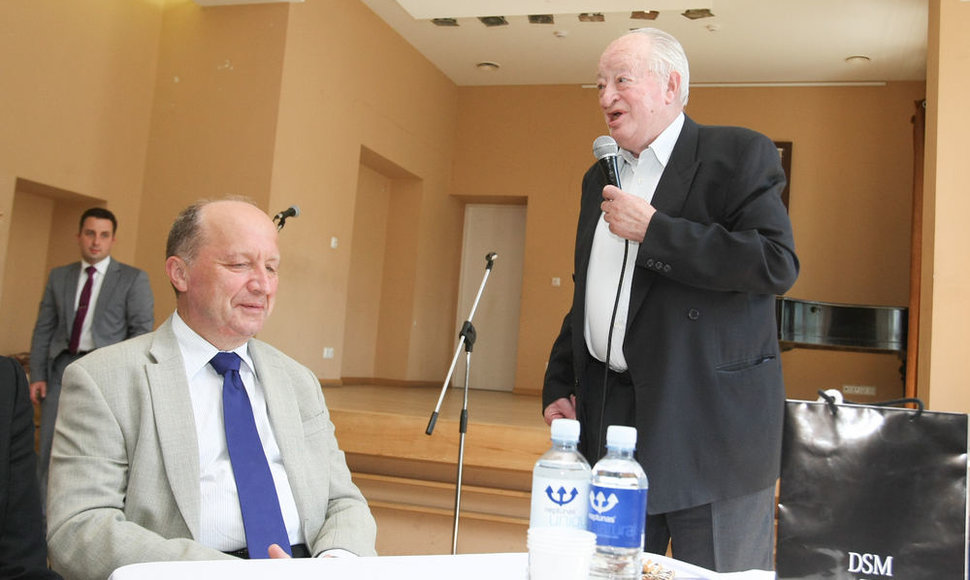"I believe (the timeline) should be by the end of the year," the community's chairman Simonas Alperavičius said after meeting with Kubilius. In Alperavičius' words, the compensation should be paid to about 1,000 members of Jewish nationality who lived in Lithuania during World War II and suffered from the totalitarian Soviet and Nazi regimes.
Adopted last year, the law on good-will compensation for real estate of Jewish religious communities envisages 3 million litas (EUR 870,000) for the purpose in this year's budget. Part of the money has already been transferred to a designated foundation that is due to hold its first meeting on 19 July.
"Some of the money has already been transferred but identifying everyone who was persecuted by terrorist regimes of the Soviets and the Nazis is a highly complicated procedure," Alperavičius told reporters.
At the same time, he emphasized that Jews in Lithuania found unacceptable the comparison of Soviets and Nazis: "We are very unhappy with the attempts to put an equality sign between the Nazis and the Soviets. Of course, both are bad but they're beyond comparison. The Soviets annihilated everyone, while the Nazis annihilated Jews only."
The law envisages 128 million litas in compensation in 2013-2023 for religious, cultural, health, sports, educational, and scientific projects of Lithuanians Jews in Lithuania. A one-off sum of 3 million litas will have to be used to support people of Jewish nationality who lived in Lithuania and suffered from totalitarian regimes during the period of occupation.
After the hour-long meeting with the prime minister, Alperavičius said that the community trusted Kubilius and shared the government's opinion on many Jewish-related matters.
"We discussed very important issues – the foundation, the Holocaust, anti-Semitism, and I am glad we reached common grounds and understanding," said the leader of the Jewish community.
"In general, I am optimistic and I trust the prime minister," Alperavičius said in comment of the government's efforts to immortalize the Jewish heritage in Lithuania.
Prime Minister Kubilius assured that the compensation would be transferred as planned, adding that the government would take care of the Litvak heritage in Lithuania.
"We are transferring 3 million (litas) under the first program, with plans to transfer tenth of the remaining 125 million (litas) – 12.5 million (litas) – next year, as stipulated by the law," the head of the government told reporters.
According to him, other topics addressed during the meeting were new premises for a Jewish gymnasium, Litvak heritage and education issues.
"It is very important for us to restore the understanding of our historical heritage and the strength of the pre-Holocaust Jewish community, the extent of the cultural heritage we strive to know and enjoy," Kubilius said.
Jewish massacres started in Lithuania in the first days of war between the Soviet Union and Nazi Germany in late June of 1941. Nearly all Jews of the provinces were driven to ghettos and murdered by mid-November 1941.
In 1943, the occupying administration decided to close down ghettos in Lithuania's largest cities as well. More than 90 percent of Lithuania's pre-war Jewish community of about 200,000 were annihilated by Nazis and their local collaborators during World War II. Around 5,000 Jewish people live in Lithuania today, according to the Jewish community.
After two years of operations, a team of Lithuanian historians recently established a list of over 1,000 Lithuanians involved in the Holocaust during World War II. The investigation is still underway, the number of Lithuanian Nazi assistants could still double.


















